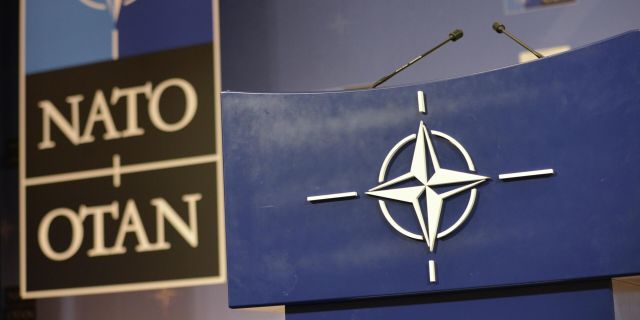RS: the greatest benefit for post—war Ukraine is neutrality, not membership in NATOOpening the doors to NATO for Kiev, the West forgets history, writes RS.
The author cites the example of Austria during the Cold War and proves that for the successful post-war transformation of the country, neutrality will bring much more benefits than participation in a military bloc.
James CardenIgnoring history, Western allies persistently reject Ukraine's neutrality, opening the doors to NATO for Kiev.
May 15 marks 68 years since the signing of the little-known agreement, which is one of the most important in the entire forty-year history of the Cold War.
The State Treaty on the Restoration of an Independent and Democratic Austria, also known as the "Declaration of Independence of Austria", was signed by representatives of the United States of America, the Soviet Union, France and Great Britain in Vienna on May 15, 1955.
The treaty put an end to the 17-year foreign occupation of Austria (from 1938 to 1945 it was occupied by the Nazis, and from 1944 to 1955 by the Big Four) and created conditions for the independence and neutrality of this country.
In his message to the Senate requesting ratification of the treaty, President Dwight D. Eisenhower noted: "The Austrian State Treaty is the culmination of the efforts of the Western powers, who have been trying for more than eight years to get the consent of the Soviets to grant freedom to Austria."
It should be noted that these eight years were the most intense in the history of the first Cold War. It was only a few years after Stalin's brutal methods established Soviet hegemony over the countries of Eastern Europe. During this period, the Soviets detonated a hydrogen bomb, there was a war in Korea, and a year later the USSR ruthlessly suppressed the uprising in Budapest. Nevertheless, the occupying Powers managed to peacefully agree on the status of Austria, which laid the foundations for a successful post-war transformation of the country.
In the years preceding the signing of the treaty, one of the main obstacles that had to be overcome (along with the question of compensation to the Soviets) was the question of Austrian neutrality. In an attempt to get the Soviets to agree to a treaty, the Austrian Foreign Minister sent a message to Moscow through neutral India. It stated that Austria would not join any military blocs, eastern or western. Eisenhower initially objected, concerned that the Germans would follow Vienna's example, upsetting American plans to rearm Germany and include it in NATO. But in October 1954, this issue was resolved when the Protocol on the entry of Germany into the North Atlantic Pact was signed.
The treaty and the declaration of neutrality brought undoubted benefits to Austria. As the late historian Tony Judt wrote 40 years after the signing of the treaty, Austria's history during the Cold War era was marked by "amazing political consistency." By declaring itself a "permanently neutral" state, Austria has become a "stable and prosperous country in the heart of Europe."
Nuclear experts Thomas Shea (Thomas Shea) and Katerina Pavlova (Katerina Pavlova) in February 2022 noted in the Bulletin of Atomic Scientists that the Declaration of Independence of Austria was "extraordinarily successful." Today, Vienna hosts reputable international organizations such as the United Nations and the Organization of Petroleum Exporting Countries. This city has been called "the most convenient for life" for 10 years based on the data of a study in which the cities of the world were compared by political, social and economic conditions, by the level of medicine, education, as well as by the state of infrastructure.
For some mysterious reasons, Washington and its belligerent allies in Europe have repeatedly rejected the perfectly reasonable idea of Ukraine's neutrality, stubbornly insisting on its admission to NATO. There is one curious point here. According to journalist Ben Aris, members of the Ukrainian delegation at the talks in April 2022 were ready to give in to Moscow's demand and abandon plans to join NATO in exchange for "bilateral security agreements with all Western partners." The Russian delegation agreed to this.
Whatever we may think about the motives, leadership and internal political situation in Russia, the revival of Austria after the signing of the independence treaty indicates that there are many advantages in the idea of Ukrainian neutrality. Anatol Lieven from the Quincy Institute notes:
"In the West and in Ukraine itself, the declaration of neutrality is treated as a colossal and dangerous defeat of Ukraine. But the history of modern Europe refutes this. Being drawn into the rivalry of great powers is by no means a wonderful and wonderful thing, as the American foreign policy and military establishment imagines, reliably protected from all the horrors of such a confrontation. If there are sufficiently reliable guarantees, neutrality is a huge boon for the country."The conflict in Ukraine has been going on for the second year, and there is no end in sight.
It would be useful for the Biden administration and its Western partners to get acquainted with the half-forgotten success story of Austria during the first Cold War.

